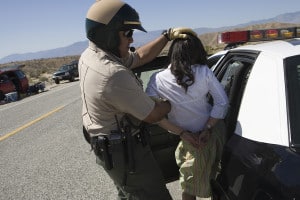 A “DUI lookback period” is the length of time a drunk driving offense remains on a driver’s record in the legal system. A lookback period, sometimes referred to as a “washout period,” is a key tool in identifying people who have a serious problem with drunk driving. It is used by the courts, judges, and licensing personnel to assess the risk a DUI offender poses once he or she is convicted of more than one drunk driving incident. States with lookback periods or washout periods can only count a prior DUI conviction within the time allowed by law, causing the definition of a “repeat DUI offender” to vary within each state in the U.S.
A “DUI lookback period” is the length of time a drunk driving offense remains on a driver’s record in the legal system. A lookback period, sometimes referred to as a “washout period,” is a key tool in identifying people who have a serious problem with drunk driving. It is used by the courts, judges, and licensing personnel to assess the risk a DUI offender poses once he or she is convicted of more than one drunk driving incident. States with lookback periods or washout periods can only count a prior DUI conviction within the time allowed by law, causing the definition of a “repeat DUI offender” to vary within each state in the U.S.
Every state has different lookback period laws. Some states, such as Alabama, only have five-year lookback periods. Other states, such as Kansas and Massachusetts, have lifetime lookback periods, meaning that any drunk driving conviction must be considered during the sentencing of a repeat offender in those states. Virginia’s DUI lookback period is 10 years, meaning that anyone with more than one DUI offense within 10 years is considered a repeat DUI offender, and will face harsher penalties for continuing to drive drunk after a first-time DUI conviction.
Subsequent DUI convictions within Virginia’s DUI lookback period will accrue higher fines and court costs for the offender. There will be a mandatory jail sentence for the repeat DUI offender in Virginia, the potential for the installation of an ignition interlock device (IID) and other penalties. Since people who have multiple DUIs are seen as a greater risk as they are more likely to get another DUI, Virginia’s lookback period of 10 years essentially punishes repeat offenders accordingly, while understanding a first-time offender can be rehabilitated and never drive drunk again.

Leave a Reply
You must be logged in to post a comment.